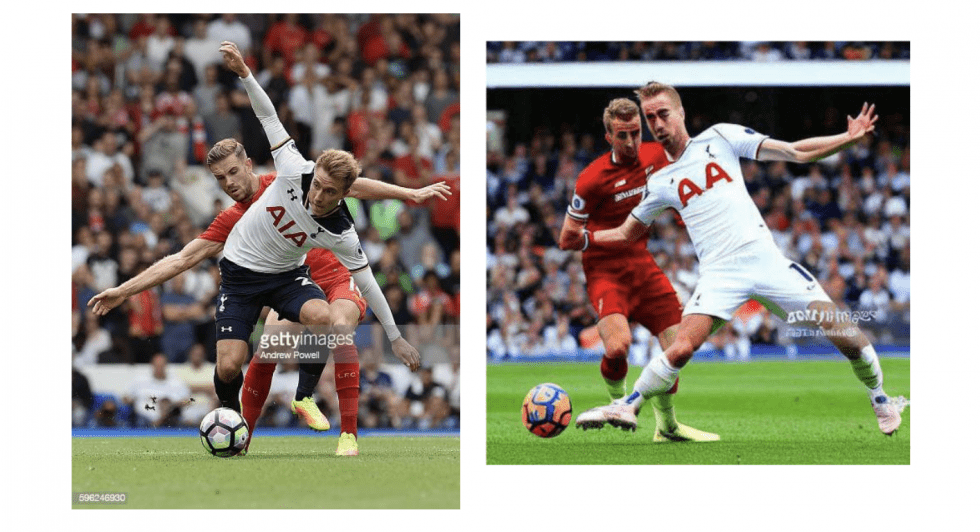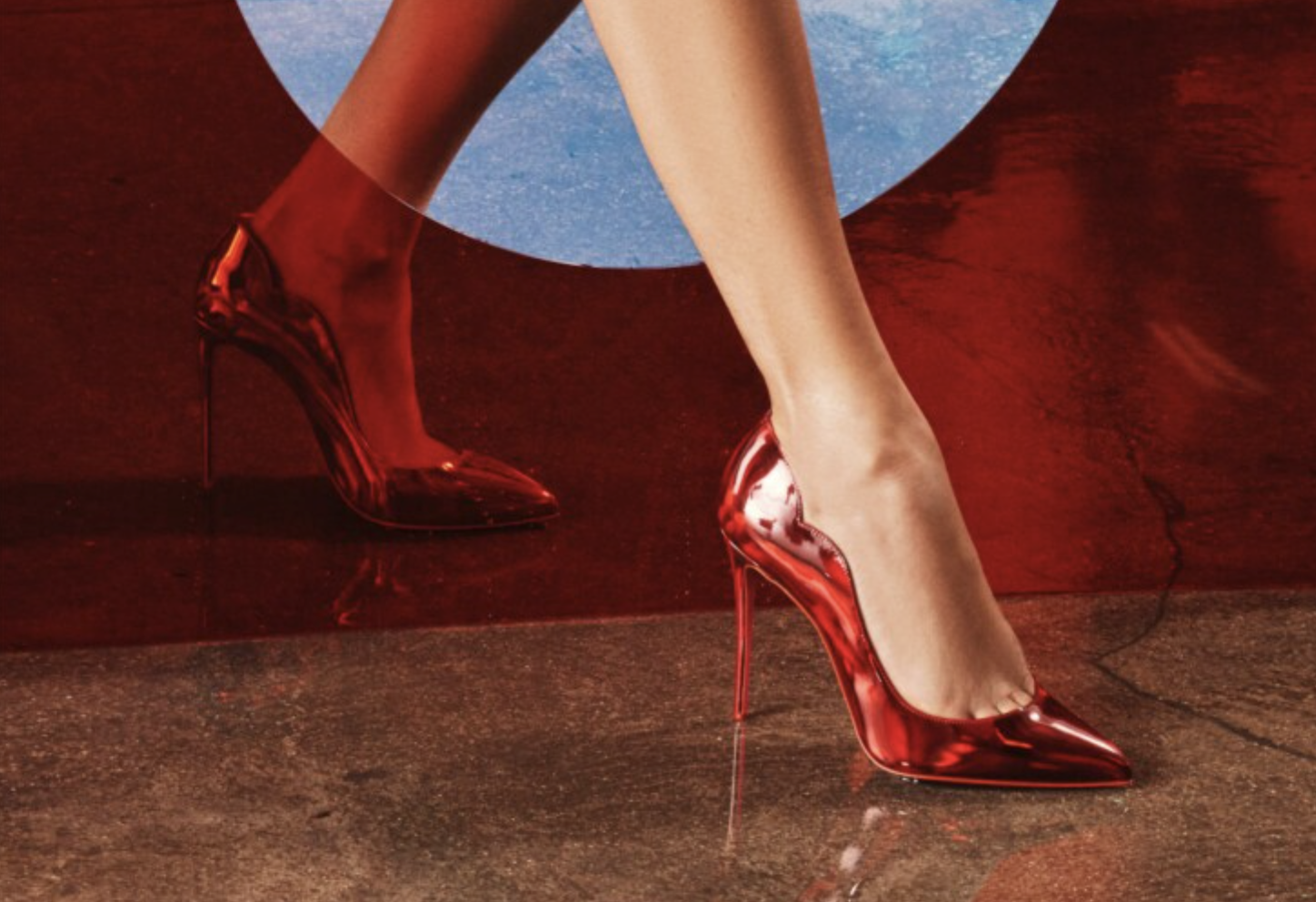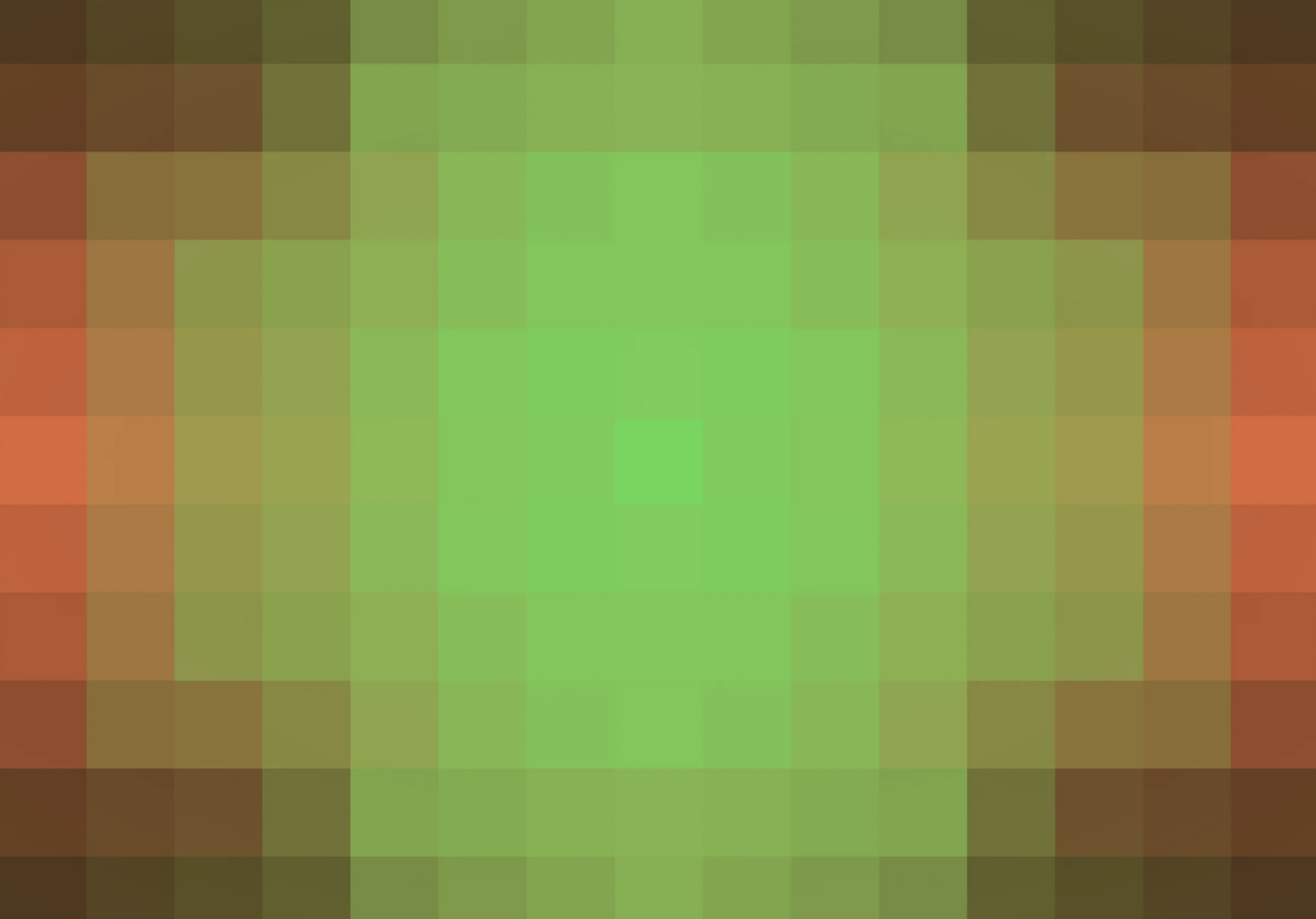The rising adoption of artificial intelligence (“AI”) across industries (including fashion, retail. luxury, etc.) that has come about in recent years is bringing with it no shortage of lawsuits, as parties look to navigate the budding issues that these relatively new models raise for companies and creators, alike. A growing number of lawsuits focus on generative AI, in particular, which refers to models that use neural networks to identify the patterns and structures within existing data to generate new content. Lawsuits are being waged against the developers behind some of the biggest generative AI chatbots and text-to-image generators, such as ChatGPT and Stability AI, and in many cases, they center on how the underlying models are trained, the data that is used to do so, and the nature of the user-prompted output (which is allegedly infringing in many cases), among other things.
In light of the onslaught of legal questions that have come about in connection with the rise of AI, we take a high-level (and chronological) look at some of the most striking lawsuits that are playing out in this space and corresponding developments …
Sept. 19, 2023: Authors Guild, et al. v. OpenAI, Inc.
The Authors Guild and more than a dozens authors, including John Grishman and George R.R. Martin, are suing an array of OpenAI entities for for allegedly engaging in “a systematic course of mass-scale copyright infringement that violates the rights of all working fiction writers and their copyright holders equally, and threatens them with similar, if not identical, harm.” In the complaint that they filed with the U.S. District Court for the Southern District of New York on September 19, the plaintiffs, who are authors of “a broad array of works of fiction,” claim that they are “seeking redress for [OpenAI’s] flagrant and harmful infringements of [their] registered copyrights” by way of its “wholesale” copying of such works without permission or consideration.
Specifically, the plaintiffs claim that by way of datasets that include the texts of their books, OpenAI “fed [their] copyrighted works into its ‘large language models,’ [which are] algorithms designed to output human-seeming text responses to users’ prompts and queries,” and which are “at the heart of [its] massive commercial enterprise.” Because OpenAI’s models “can spit out derivative works: material that is based on, mimics, summarizes, or paraphrases the plaintiffs’ works, and harms the market for them,” it is endangering “fiction writers’ ability to make a living, in that the [models] allow anyone to generate – automatically and freely (or very cheaply) – texts that they would otherwise pay writers to create.”
With the foregoing in mind, the plaintiffs set out claims of direct copyright infringement, vicarious copyright infringement, and contributory copyright infringement.
Sept. 8, 2023: Chabon v. OpenAI, Inc.
Authors Michael Chabon, David Henry Hwang, Matthew Klam, Rachel Louise Snyder, and Ayelet Waldman are suing OpenAI on behalf of themselves and a class of fellow “authors holding copyrights in their published works arising from OpenAI’s clear infringement of their intellectual property.” In their September 8 complaint, which was filed with a federal court in Northern California, Chabon and co. claim that OpenAI incorporated their “copyrighted works in datasets used to train its GPT models powering its ChatGPT product.” Part of the issue, according to the plaintiffs, is that “when ChatGPT is prompted, it generates not only summaries, but in-depth analyses of the themes present in [their] copyrighted works, which is only possible if the underlying GPT model was trained using [their] works.”
The plaintiffs claim that they “did not consent to the use of their copyrighted works as training material for GPT models or for use with ChatGPT,” and that by way of their operation of ChatGPT, OpenAI “benefit[s] commercially and profit handsomely from [its] unauthorized and illegal use of the plaintiffs’ copyrighted works.”
Jul. 11, 2023: J.L., C.B., K.S., et al., v. Alphabet, Inc., et. al.
Google and its owner Alphabet are being sued over their alleged practice of “stealing” web-scraped data and “vast troves of private user data from [its] own products” in order to build commercial artificial intelligence (“AI”) products like its Bard chatbot. In the complaint that they filed with a California federal court on Tuesday, J.L., C.B., K.S., P.M., N.G., R.F., J.D., and G.R., who have opted to file anonymously, claim that “for years, Google harvested [our personal and professional information, our creative and copywritten works, our photographs, and even our emails] in secret, without notice or consent from anyone,” thereby, engaging in unfair competition, negligence, invasion of privacy, and copyright infringement, among other causes of action.
Jul. 7, 2023: Silverman, et al. v. OpenAI, Inc.
Mirroring the complaint that authors Paul Tremblay and Mona Awad filed against OpenAI on June 28, Sarah Silverman (yes, that Sarah Silverman), Christopher Golden, and Richard Kadrey (“Plaintiffs”) accuse the ChatGPT developer of direct and vicarious copyright infringement, violations of section 1202(b) of the Digital Millennium Copyright Act, unjust enrichment, violations of the California and common law unfair competition laws, and negligence in a new lawsuit. The basis of the lawsuit: “Plaintiffs and Class members are authors of books. Plaintiffs and Class members have registered copyrights in the books they published. Plaintiffs and Class members did not consent to the use of their copyrighted books as training material for ChatGPT. Nonetheless, their copyrighted materials were ingested and used to train ChatGPT.”
Jul. 7, 2023: Kadrey, et al. v. Meta Platforms, Inc.
The same trio of plaintiffs as above – Sarah Silverman, Christopher Golden, and Richard Kadrey – filed lodged a separate but very similar complaint against Meta Platforms in federal court in Northern California on July 7, accusing the Facebook and Instagram-owner of running afoul of copyright law by way of LLaMA, a set of large language models that it created and maintains. According to the plaintiffs’ suit, “many of [their] copyrighted books” were included in dataset assembled by a research organization called EleutherAI, which was “copied and ingested as part of training LLaMA.”
Jun. 28, 2023: Tremblay v. OpenAI, Inc.
A couple of authors are the latest to file suit against ChatGPT developer OpenAI. According to the complaint that they filed with a federal court in Northern California on June 28, Paul Tremblay and Mona Awad assert that in furtherance of the training of the large language model that powers the generative AI chatbot that is ChatGPT, OpenAI has made use of large amounts of data, including the text of books that they have authored without their authorization, thereby, engaging in direct copyright infringement, violations of the Digital Millennium Copyright Act, and unfair competition.
Among other things, the plaintiffs allege that OpenAI “knowingly designed ChatGPT to output portions or summaries of [their] copyrighted works without attribution,” and the company “unfairly profit[s] from and take[s] credit for developing a commercial product based on unattributed reproductions of those stolen writing and ideas.”
Jun. 28, 2023: Plaintiffs P.M., K.S., et al. v. OpenAI LP, et al.
More than a dozen underage individuals have filed suit against OpenAI and its partner/investor Microsoft in connection with the development and marketing of generative AI products, which allegedly involves the scraping of “vast” amounts of personal data. According to the June 28 complaint, OpenAI and the other defendants have “stolen private information, including personally identifiable information, from hundreds of millions of internet users, including children of all ages, without their informed consent or knowledge” in furtherance of their creation and operation of the ChatGPT, Dall-E, and Vall-E programs. And they “continue to unlawfully collect and feed additional personal data from millions of unsuspecting consumers worldwide, far in excess of any reasonably authorized use, in order to continue developing and training the products.”
The plaintiffs accuse OpenAI of violating: The Electronic Communications Privacy Act; The Computer Fraud and Abuse Act; California’s Invasion of Privacy Act and Unfair Competition law; Illinois’s Biometric Information Privacy Act, Consumer Fraud and Deceptive Business Practices Act, and Consumer Fraud and Deceptive Business Practices Act; and New York General Business Law s. 349, which prohibits deceptive acts and practices unlawful. Beyond that, the plaintiffs also set out negligence, invasion of privacy, intrusion upon seclusion, larceny/receipt of stolen property, conversion, unjust enrichment, and failure to warn causes of action.
UPDATED (Sept. 15, 2023): The unnamed plaintiffs moved to voluntarily dismiss their case against OpenAI and Microsoft without prejudice, which suggests that the parties reached an agreement out of court.
Jun. 5, 2023: Walters v. OpenAI LLC
And in yet another suit being waged against OpenAI, Plaintiff Mark Walters asserts that the company behind ChatGPT is on the hook for libel as a result of misinformation that it provided to a journalist in connection with his reporting on a federal civil rights lawsuit filed against Washington Attorney General Bob Ferguson and members of his staff. In particular, Walters claims that ChatGPT’s case summary (and journalist Fred Riehl’s article) stated that the lawsuit was filed against him for fraud and embezzlement. The problem with that, according to Walters’s lawsuit, is that he is “neither a plaintiff nor a defendant in the lawsuit,” and in fact, “every statement of fact” in the ChatGPT summary that pertains to him is false.
Apr. 3, 2023: Young v. NeoCortext, Inc.
“Deep fake” app Reface is at the center of a proposed class action complaint, with TV personality Kyland Young accusing the company of running afoul of California’s right of publicity law by enabling users to swap faces with famous figures – albeit without receiving authorization from those well-known individuals to use their likenesses. According to the complaint that he filed in a California federal court in April, Young asserts that Reface developer NeoCortext, Inc. has “commercially exploit[ed] his and thousands of other actors, musicians, athletes, celebrities, and other well-known individuals’ names, voices, photographs, or likenesses to sell paid subscriptions to its smartphone application, Reface, without their permission.”
NeoCortext has since argued that Young’s case should be tossed out on the basis that the reality TV personality not only fails to adequately plead a right of publicity claim, but even if he could, that claim is preempted by the Copyright Act and barred by the First Amendment.
Feb. 15, 2023: Flora, et al., v. Prisma Labs, Inc.
Prisma Labs – the company behind AI image-generating app, Lensa A.I. – was named in a proposed class action lawsuit in February, with the plaintiffs arguing that despite “collecting, possessing, storing, using, and profiting from” Lensa users’ biometric identifiers namely, scans of their “facial geometry,” in connection with its creation of custom avatars, Prisma has failed to properly alert users about the biometric data its collects and how it will be stored/destroyed, as required by the Illinois data privacy law.
UPDATED (Aug. 8, 2023): A N.D. Cal. judge sided with Prisma Labs, granting its motion to compel arbitration in the proposed class action, despite the plaintiffs’ arguments that the arbitration provision in Lena’s terms is unconscionable and that “because some provisions in the arbitration agreement arguably fall below JAMS’ Consumer Arbitration Minimum Standards, the arbitration provision is illusory.”
Feb. 3, 2023: Getty Images (US), Inc. v. Stability AI, Inc.
In the wake of Getty announcing that it had “commenced legal proceedings” in the High Court of Justice in London against Stability AI, Getty Images (US), Inc. filed a stateside lawsuit, accusing Stability AI of “brazen infringement of [its] intellectual property on a staggering scale.” Specifically, the photo agency argues that Stability AI has copied millions of photographs from its collection “without permission from or compensation to Getty Images, as part of its efforts to build a competing business.”
In addition to setting out a copyright infringement cause of action and alleging that Stability AI has provided false copyright management information and/or removed or altered copyright management information, Getty accuses Stability AI of trademark infringement and dilution on the basis that “the Stable Diffusion model frequently generates output bearing a modified version of the Getty Images watermark.” This creates “confusion as to the source of the images and falsely implying an association with Getty Images,” per Getty. And beyond that, Getty asserts that “while some of the output generated through the use of Stable Diffusion is aesthetically pleasing, other output is of much lower quality and at times ranges from the bizarre to the grotesque,” giving rise to dilution.

In a motion to dismiss in May, Stability AI, Inc. argued that Getty has not even attempted to make a case for jurisdiction under Delaware’s long-arm statute, as it “does not allege that any of the purportedly infringing acts regarding training Stable Diffusion occurred within Delaware.” Instead (and “although the amended complaint is vague in this regard”), Stability AI claims that Getty “appears to allege that the training took place in England and Germany,” pointing to the following language from the plaintiff’s amended complaint, “Stable Diffusion was trained . . . from Datasets prepared by non-party LAION, a German entity…”. Getty also does not allege that Stability AI Ltd. “contracted to supply services or things in Delaware,” per Stability AI.
Jan. 13, 2023: Andersen, et al. v. Stability AI LTD., et al.
Stability AI was named in a copyright infringement, unfair competition, and right-of-publicity lawsuit in January 2023, along with fellow defendants DeviantArt and Midjourney. In furtherance of the lawsuit, a trio of artists is accusing Stability AI and co. of engaging in “blatant and enormous infringement” by using their artworks – without authorization – to enable AI-image generators, including Stable Diffusion, to create what are being characterized as “new” images but what are really “infringing derivative works.”
The defendants have pushed back against the suit, with Stability AI arguing this spring that while Stable Diffusion was “trained on billions of images that were publicly available on the Internet … training a model does not mean copying or memorizing images for later distribution. Indeed, Stable Diffusion does not ‘store’ any images.” Meanwhile, in a filing of its own in April, text-to-image generator DeviantArt urged the court to toss out the claims against it and to strike the right-of-publicity claims lodged against it, as they “largely concern the potential for DreamUp to create art,” which falls neatly within the bounds of free speech. As such, the Los Angeles-based online art (and AI) platform says that the plaintiffs’ claims should be barred by California’s anti-SLAPP statute.
May 6, 2020: Thomson Reuters Enterprise Centre GmbH et al v. ROSS Intelligence Inc.
In an early generative AI-centric case, Thomson Reuters alleges that ROSS copied the entirety of its Westlaw database (after having been denied a license) to use as training data for its competing generative AI-powered legal research platform. Reuters’ complaint survived a motion to dismiss in 2021. Fast forward to the summary judgement phase, and ROSS has argued, in part, that its unauthorized copying/use of the Westlaw database amounts to fair use. Specifically, ROSS claims that it took only “unprotected ideas and facts about the text” in order to train its model; that its “purpose” in doing so was to “write entirely original and new code” for its generative AI-powered search tool; and that there is no market for the allegedly infringed Westlaw content consisting of headnotes and key numbers.
*This article was initially published on June 5, and has been updated to reflect newly-filed lawsuits and updates in previously-reported cases.


